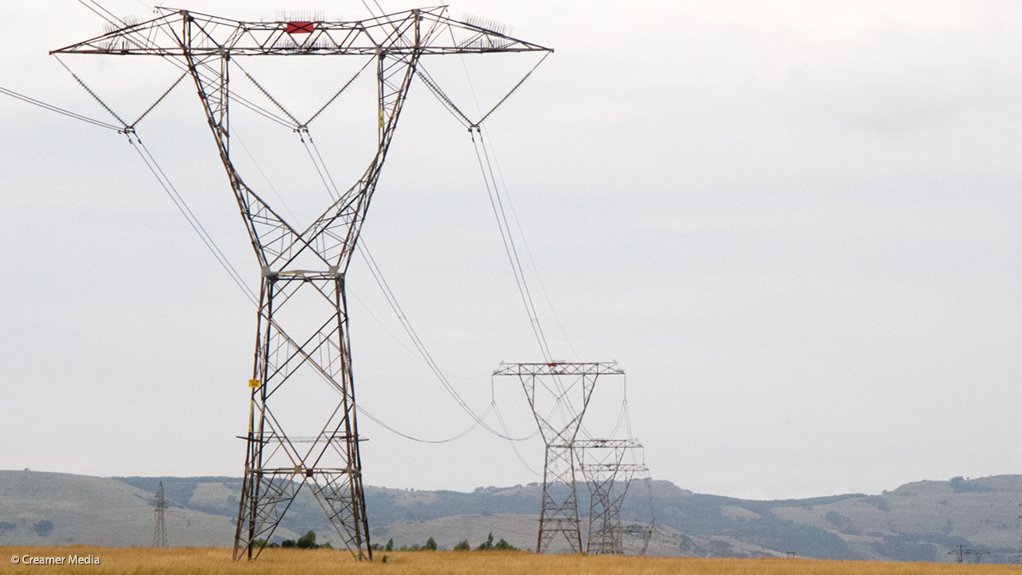State-owned electricity producer Eskom confirms that it has been approached by customers in various industrial sectors with regard to possible applications for discounted Negotiated Pricing Agreements (NPAs), but says its weak financial position prevents widespread implementation.
The first NPA submitted under a recently approved government framework for such deals is currently serving before the National Energy Regulator of South Africa (Nersa), which has called for stakeholder comment on a proposed ten-year NPA for South32’s Hillside Aluminium smelter, in KwaZulu-Natal.
The NPAs are intended for electricity intensive customers specifically in the industrial and mining sectors that meet the qualification criteria stipulated in the frameworks, including having minimum consumption thresholds of 80 GWh and/or load factors greater than 70%.
Prior to the publication of new frameworks for five- and ten-year NPAs in 2020, the regulator approved discounted-tariff deals for Silicon Smelters and Sublime Technologies.
Collectively, the NPA applications submitted to Nersa to date involved yearly sales of 11 TWh, with Hillside, which is Eskom’s largest customer, accounting for more than 10 TWh of that amount.
Eskom says it has no specific budget for NPAs and that its weak financial position means that it is in no position to support all industries.
However, it is keen to use NPAs to sustain industries considered as strategic by government and its own industrial sales, which have dropped by about 16 TWh, from 90 TWh in 2007 to about 74 TWh.
The utility’s sales to industrial and mining customers currently stands at about 34% of total sales, with the balance divided between sales to municipal distributors (44%), the residential and commercial market (15%) and the agricultural and rail sectors (7%).
Eskom says its NPA submissions are guided by applicable policies, including industrial policy, as well as the framework and rules issued by the Department of Mineral Resources and Energy and Nersa.
“In general, the typical applicant that would qualify for a NPA is not sustainable on the applicable standard tariff. The tariff level would ensure no direct subsidy and other technical and macro-economic benefits are considered,” Eskom explained in response to an Engineering News enquiry.
The NPAs were also structured to “best address and balance the needs of the applicant and the licensees and the sector’s ability to respond to demand and pricing signals”.
Eskom added, however, that it sought to ensure that these tariffs were set at as high a level as possible considering the sustainability of the applicant and sector and Eskom’s cost of supply.
In the Hillside submission, Eskom argued that the smelter would close in the absence of the proposed NPA.
Nevertheless, Eskom also stressed that the proposed new Hillside NPA contained no embedded derivative, as was the case previously, with the tariff having been linked to the aluminium price and the rand/dollar exchange rate.
It also asserted that the proposed tariff, the rate of which has not been disclosed, was at a considerably higher level and of a far shorter duration than the previous, and contentious, 25-year NPA secured by Hillside smelter.
The utility indicated that it was mindful of potential issues of discriminatory pricing and possible accusations of anti-competitive behaviour and reported that it was engaging with its shareholder on the matter.
“Eskom is guided by the criteria as contained in the frameworks and applies these.
“The electricity supply industry is unable to support all applications for NPAs and a mechanism is required to determine which industries or sectors should be prioritised for electricity price support.
“Eskom is engaging with the Department of Trade, Industry and Competition on this matter,” the utility told Engineering News, adding that it was also engaging government on possible alternate funding options, owing to its inability to fund the NPAs.
Nersa has set a closing date for written comments of Wednesday, May 26 and expects to announce the Energy Regulator’s decision on July 29.
Eskom said the NPAs were effective the month following Nersa’s approval or such later date as agreed with the parties and Nersa.
“The proposed Hillside NPA is following the Nersa governance process and the Nersa consultation paper has been issued for stakeholder comment,” Eskom highlighted.
EMAIL THIS ARTICLE SAVE THIS ARTICLE ARTICLE ENQUIRY
To subscribe email subscriptions@creamermedia.co.za or click here
To advertise email advertising@creamermedia.co.za or click here











